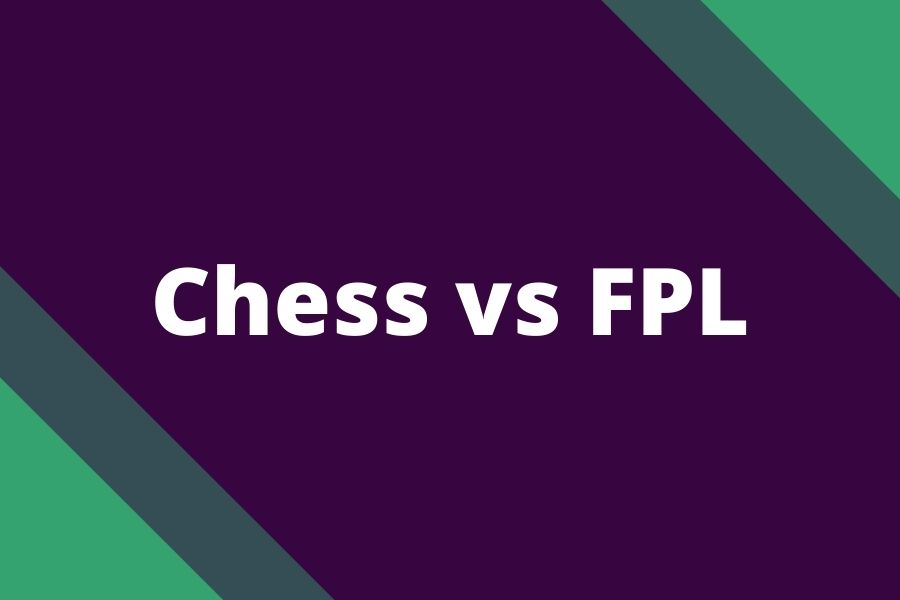Chess and Fantasy Premier League (FPL) might seem worlds apart at first glance. One is a timeless board game that has been played for centuries, while the other is a modern online game based on the ever-changing world of Premier League football.
However, beneath the surface, these two games share some striking similarities. Both require strategic thinking, careful planning, and smart decision-making. As such, it’s not surprising that skills honed on the chessboard can translate well to the virtual football pitch.
We all know how Chess Grandmaster Magnus Carlsen did extremely well in Fantasy Premier League in the 2019/20 season.
In this article, we’ll explore why chess players can potentially excel in FPL.
Similarities Between Chess and Fantasy Football
To understand why chess players can do well in FPL, it’s important to first understand the basic principles of both games. Chess is a strategic board game where two players take turns moving pieces with different abilities across the board, with the objective of checkmating the opponent’s king. It requires strategic planning, tactical thinking, and the ability to anticipate and respond to the opponent’s moves.
FPL, on the other hand, is a game where players create a virtual football team made up of real-life Premier League players. The objective is to score as many points as possible, based on the real-life performances of the players in your team.
Like chess, FPL requires strategic planning (in terms of team selection and transfers), tactical thinking (such as deciding when to play certain chips), and the ability to anticipate and respond to changes (like player injuries or changes in form).
Read more: 6 books that will help you improve your FPL skills.
Strategic Thinking
One of the key skills that chess players develop is strategic thinking. Chess is all about strategy – from the opening moves to the endgame, players must constantly think several moves ahead, anticipate their opponent’s strategies, and devise plans to achieve their objective.
This strategic thinking translates well to FPL. Just like in chess, FPL managers need to think several moves ahead. This could involve planning transfers several gameweeks in advance, strategizing on when to play chips like the Wildcard or Free Hit, or deciding which players to captain based on upcoming fixtures.
The ability to devise and execute a successful strategy is crucial in both chess and FPL, making chess players well-equipped for the strategic demands of FPL.
Planning Ahead
Closely related to strategic thinking is the ability to plan ahead. In chess, players must think several moves ahead, considering not only their own moves but also anticipating potential responses from their opponent. This foresight is crucial in navigating the complexities of the game and working towards a checkmate.
Similarly, in FPL, successful managers are those who can plan ahead effectively. This might involve planning transfers to navigate fixture congestion, anticipating price changes, or strategizing on when to play chips for maximum effect.
Just as a chess player might plan a sequence of moves to trap their opponent’s queen, an FPL manager might plan a series of transfers to bring in a high-performing player ahead of a run of favorable fixtures. This ability to plan ahead is another reason why chess players can excel in Fantasy Football.
Decision-Making Skills
Chess is a game of decisions.
Every move a player makes on the chessboard is a decision that can significantly impact the outcome of the game. Chess players must weigh the pros and cons of each potential move, consider the possible responses from their opponent, and decide on the best course of action.
This constant decision-making helps chess players develop strong decision-making skills.
In FPL, managers are also faced with numerous decisions. Who should be in the starting XI? Who should be the captain for the gameweek? Is it time to play a chip? Should a player be transferred out due to injury or poor form?
Each of these decisions can significantly impact the team’s performance. The decision-making skills that chess players develop can be highly beneficial in FPL, helping them make informed and strategic decisions that can lead to success.
Patience and Discipline
Patience and discipline are key traits of successful chess players. Chess games can last for hours, and players must remain focused and patient, even when the game is challenging. They must also have the discipline to stick to their strategy and not make impulsive moves that could jeopardize their position.
Similarly, patience and discipline are valuable traits in FPL. It can be tempting to make knee-jerk transfers based on a single gameweek’s performance or to use chips early in the season.
However, successful FPL managers often exhibit patience, holding onto players through temporary dips in form, and have the discipline to stick to their long-term strategy. The patience and discipline that chess players develop can therefore be highly beneficial in FPL.
Ability to Adapt
In chess, the ability to adapt to changing situations is crucial. A player’s position on the chessboard can change dramatically with each move, and players must be able to adapt their strategy accordingly. This might involve changing tactics in response to an unexpected move from the opponent or adapting their strategy based on the evolving state of the game.
In FPL, the ability to adapt is equally important. Player injuries, changes in form, fixture reschedules, and other factors can all require FPL managers to adapt their strategies. A player who was a key part of your team could get injured, a team that was performing poorly could hit a run of good form, or a double gameweek could suddenly be announced.
Being able to adapt to these changes and adjust your strategy accordingly is a key part of success in FPL, and is another area where chess players can excel.
Conclusion
From strategic thinking and planning ahead to decision-making skills and the ability to adapt, there are numerous reasons why chess players can do well in FPL. The skills and traits that are honed on the chessboard can translate well to the virtual football pitch, helping chess players navigate the complexities of FPL and achieve success.
So, if you’re a chess player considering dipping your toes into FPL, why not give it a go? You might just find that your chess skills give you an edge in the game.
Further Resource
- How to play Fantasy Premier League?
- Official FPL Ruls
- 7 Key Tips for Fantasy Premier League Success
- Why You Should Play FPL?
- Similarities Between FPL and Stock Market


![3 Best Captain Picks for FPL GW38 [Captaincy Index] fpl best captain picks](https://www.fantasyfootballreports.com/wp-content/uploads/fpl-best-captain-picks.jpg)

